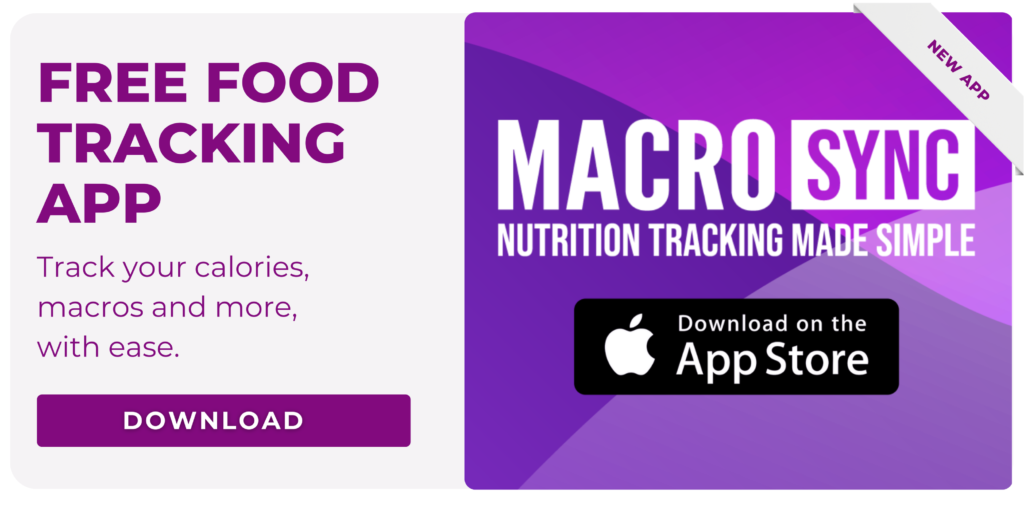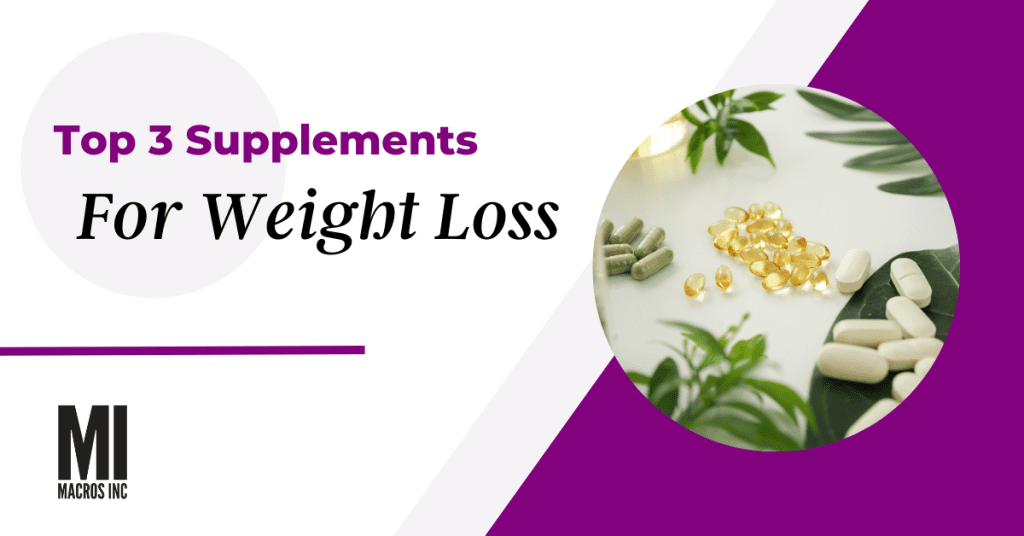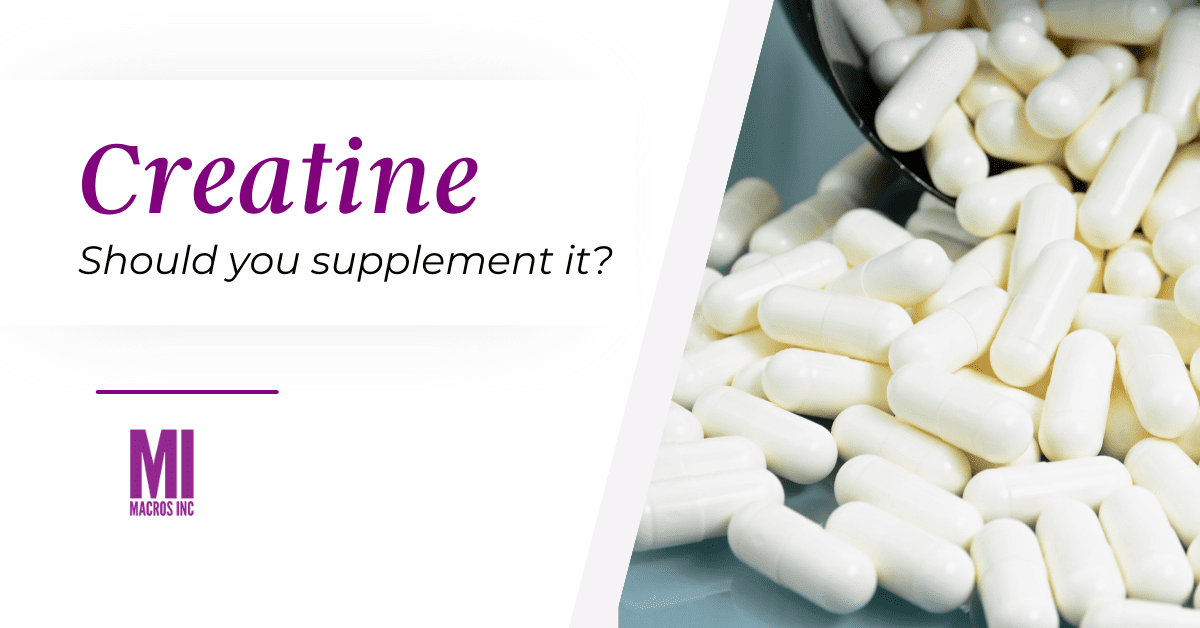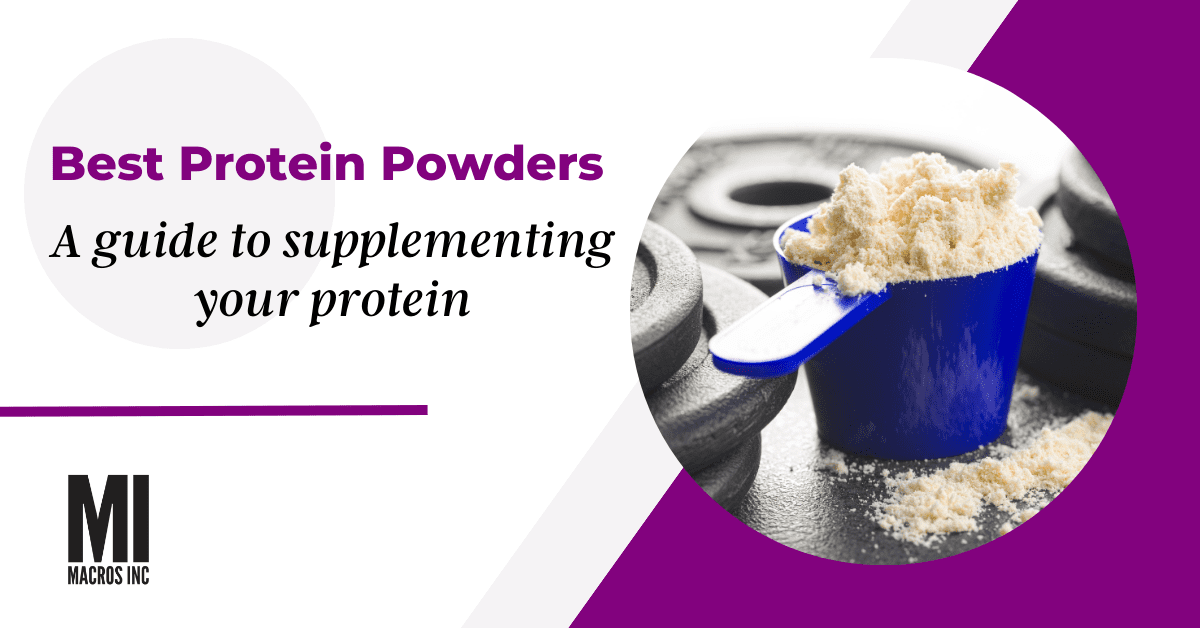If you’re looking to lose weight, it’s tempting to turn to weight loss supplements as a quick fix. However, there are few – if any – weight loss supplements that safely and effectively increase progress. Many supplements out there make claims without substantial evidence to support them, and others are downright harmful.
So when choosing supplements to support your weight loss goals, keep in mind that weight loss supplements are meant to be just that – “supplementary” to an already nutrient-dense diet and active lifestyle. That’s where the real benefits kick in!
There are a few essentials that are both scientifically-backed and nearly universally beneficial for healthy individuals if you’re looking to lose body fat. But remember, these are not recommendations for your specific needs, so be sure to get extra guidance around supplementation by checking with your doctor, and working with a nutrition coach to help you along the way.
Jump to a Topic
Supplements for Weight Loss
Creatine
One of the most safe and well-researched weight loss supplement out there is creatine monohydrate. Creatine is a naturally occurring energy source found within animal-based food products. When the body needs rapid and powerful energy to perform a given task (like HIIT cardio or weight lifting for your weight loss goals!) creatine is used for really powerful energy production.
But there’s a problem with relying on creatine from food alone – it’s often hard to get enough! By supplementing with creatine, you can maximize energy production and the resulting performance enhancements. That extra push in your workout can help you burn through more calories, and improve your overall body composition.
Since creatine is mostly found in animal foods, vegans and vegetarians are especially likely to be low on this vital energy source. Regardless of diet, though, creatine supplementation has been shown to be beneficial for almost everyone.
Dosage
Taking 3-5 grams daily of supplemental creatine in the easy-to-use form of creatine monohydrate has been shown to improve creatine stores in the body, leading to faster all-out sprint times, increased reps of heavy lifting, and even improved endurance and recovery.
Creatine requires consistent use to be effective, as the impacts are most pronounced when creatine stores are fully saturated. You’ll start to notice the difference after taking it daily for 3 weeks, or even sooner if you’re a vegan or vegetarian. Then continue taking creatine through the course of your weight loss journey.
Misconceptions
One common misconception about creatine is that it makes you gain weight. Obviously this is contradictory to weight loss goals! Creatine does not cause weight gain. It does, however, temporarily result in water retention by providing extra hydration to your working muscle cells. This can actually result in a leaner appearance! And any spike on the scale also drops off within a few weeks of use.
Protein Powder
Protein is an incredibly important macro to consider as someone looking to lose weight. The amount of protein you need is far higher than the bare minimum most people consume to survive.
Aiming for at least 1.3-1.8 grams of protein per kilogram of body weight will help with satiety levels, blood sugar stabilization, muscle repair, and lean body mass maintenance. Getting enough total protein throughout the day from a variety of sources can provide a complete and bioavailable dose of amino acids.
Although you can certainly get all the protein you need from food, it can be harder to do so without supplementation when calories are low in a diet. Including a scoop of protein powder daily can provide an easy, lean source of protein to help you hit your targets – essential for healthy weight loss.

Dosage
Protein is also necessary after exercise, as this is when muscles are depleted of their fuel stores and muscles get damaged and broken down. Consuming protein post-exercise can allow for efficient muscle recovery, getting you back in the gym for a more intense workout even faster.
Consuming 20-30 grams of supplemental protein in the form of protein powder benefits nearly everyone. Plus, the protein requirements listed above are minimum amounts. It’s pretty hard to get too much protein!
Misconceptions
A common misconception about protein is that you can only absorb 30 grams of protein at a time, and the rest either turns to fat or is passed through your body undigested. This is missing the mark. Studies show that to maximize anabolism (the process of muscle repair or growth) a healthy person uses about 20 to 25 grams directly for muscle synthesis. This is why it’s beneficial to space out protein throughout the day.
But what happens when you consume more than 25 grams of protein in one sitting? The protein doesn’t magically disappear. There is more to protein than just muscle growth and repair, including supporting hormones, immunity, connective tissue and appetite management. The protein is still absorbed, it will just go elsewhere in the body – including towards appetite regulation while dieting!
High Quality Multivitamins
Multivitamins are far less exciting than creatine or protein powder. And like I mentioned before, they cannot erase the impacts of a nutritionally-deficient diet or a lack of exercise, adequate sleep, regular health checks or stress management.
All these things are essential for weight loss! If these basics are not happening, weight loss supplements won’t do much. Plus there are nutrients we don’t fully understand, like phytonutrients and zoochemicals and even fiber, that you would miss out on if not eating adequate and varied sources of nutrient-dense foods. So make sure you continue to fuel yourself, even while supplementing!
Benefits of Multivitamins
But multivitamins can help fill nutritional gaps that are common in most people’s diets, especially when in a calorie deficit and there are simply fewer opportunities to get all your vitamins and minerals from food.
Taking a daily multivitamin can help offset some of the reduced micronutrient intake that occurs when eating less food. More specific supplementation can be helpful after reviewing bloodwork and conferring with your doctor, but for most people, a multivitamin is a good way to get started.
There are many inexpensive and often not third-party tested vitamins out there that tout exorbitantly high levels of common micronutrients, but may be lacking the ones that really matter or the forms that are more easily absorbed by your body.
There is no such thing as a weight loss multivitamin, so don’t be swayed by fancy language! Choose a multivitamin that is third-party tested to ensure the nutritional panel on the bottle is accurate. For women past menopause, supplemental iron can be dangerous unless recommended by your doctor. So make sure you’re choosing a multivitamin for your correct age group and needs.
Considerations
Remember, you cannot out-supplement lack of exercise or a bad diet. So work on the “big rocks” first, and make sure you’re supported in doing so! Rather than spending hundreds of dollars on ineffective weight loss supplements, put that towards a nutrition coach – an investment that pays dividends.
Try our nutrition coaching, for free!
Be the next success story. Over 30,000 have trusted Macros Inc to transform their health.
Simply fill out the form below to start your 14-day risk-free journey. Let's achieve your goals together!



